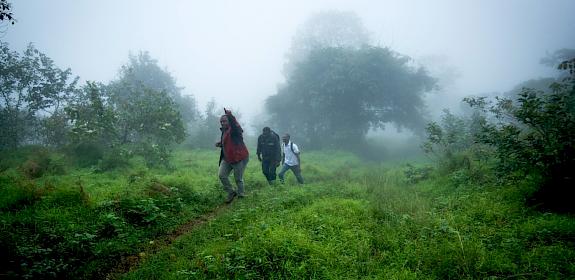Airline Industry in South Africa and Vietnam Increase Efforts to Stop Wildlife Trafficking
Johannesburg, South Africa, 30th September – As world conservation leaders meet to discuss the fate of endangered species at the Convention on International Trade in Endangered Species of Wild Fauna and Flora (CITES) 17th Conference of the Parties in Johannesburg, South Africa, the USAID Reducing Opportunities for Unlawful Transport of Endangered Species (ROUTES) Partnership conducted two concurrent trainings with airport personnel to highlight the abuse of the transport sector for wildlife trafficking.
The two trainings took place at O. R. Tambo International Airport (JNB) in Johannesburg, South Africa on September 29th and Tan Son Nhat International Airport (SGN) in Ho Chi Minh City, Vietnam on September 30th. These two airports are inextricably linked by the smuggling of rhino horn from the major source to the major consumer nation.
During the trainings, 176 airport and airline personnel were given an introduction to the global wildlife trade and the potential risks to transport and logistics providers, introduced to techniques used by traffickers for smuggling wildlife through aviation transport, and informed on how best to respond and report trafficked wildlife upon detection. The training focused on key species threatened by illegal trade, such as elephants, rhinos, and pangolins.
The South Africa training was organized by the country’s national carrier, South African Airways, signaling their commitment to raise awareness among their staff on the illegal wildlife trade and to support law enforcement efforts to combat wildlife trafficking that is driving species such as rhinos toward extinction.
The Vietnamese training was organized by three partners, the Central Committee for Propaganda and Education (the advisory body of the Central Committee of the Vietnamese Communist Party), the Block Party Secretary and the Central Party Business Sector, demonstrating the Government’s support for tackling wildlife trafficking in the country.
Feedback from these sessions will be incorporated into training modules that will be available to other transport sector partners through the ROUTES Partnership. These trainings, conducted by TRAFFIC and Freeland with support from the International Air Transport Association under the ROUTES Partnership, highlight the growing commitment by the transport sector to take action on illegal wildlife trafficking, and were well-timed as global conservationists meet to strategize on how best to intervene against a significant global threat to endangered species; illegal wildlife trade.
ROUTES strategically targeted these two airports as South Africa is the global epicenter of rhino poaching and smuggling, where last year 1,175 were killed for their horn, with most horns being smuggled to Vietnam for trade as tonics and medicines. Criminals are exploiting legal transportation supply chains to move illegally harvested wildlife, a crisis that port authorities, transport and logistics companies now recognize as a major challenge they can help tackle.
About the ROUTES Partnership

The USAID Reducing Opportunities for Unlawful Transport of Endangered Species (ROUTES) Partnership brings together transport and logistics companies, government agencies, development groups, law enforcement, conservation organisations and donors to disrupt wildlife trafficking activities, and forms a key element of the concerted international response to addressing wildlife poaching and associated criminal activities worldwide. Further information and resources can be found at www.routespartnership.org.
About USAID

The United States Agency for International Development (USAID) is responsible for the majority of overseas development assistance from the United States Government and works to end extreme poverty and promote resilient, democratic societies while advancing security and prosperity for America and the world





